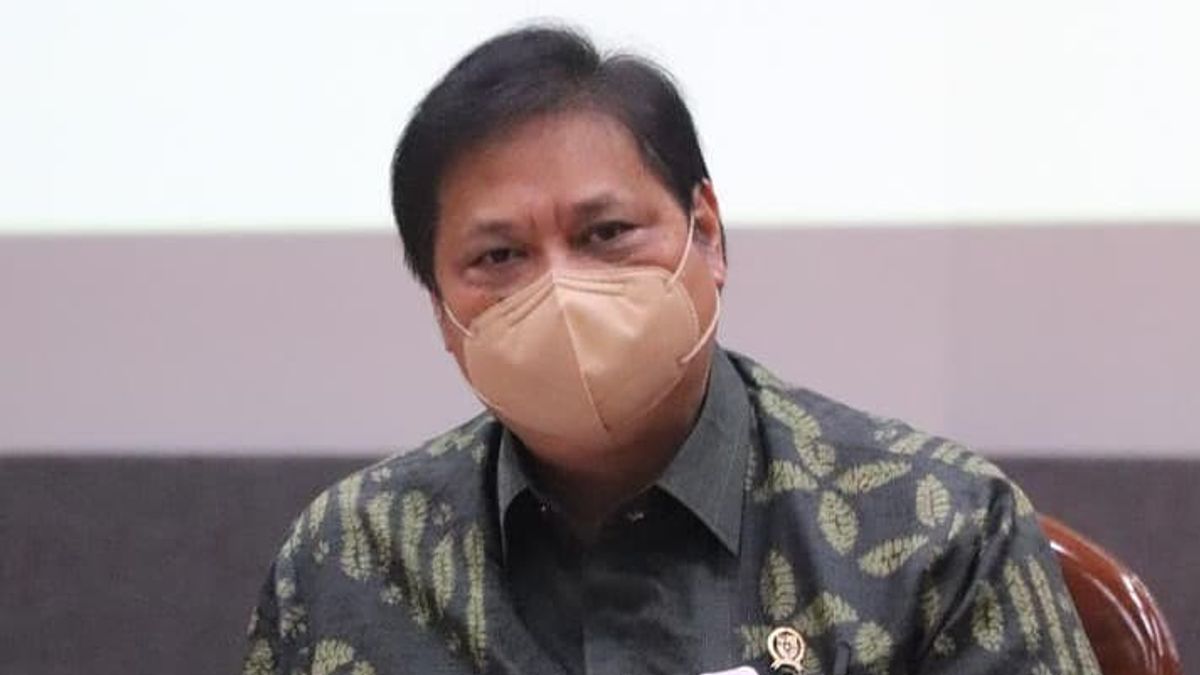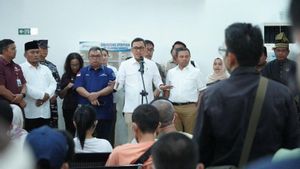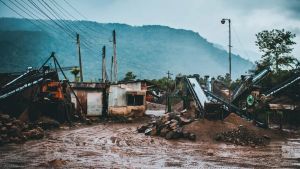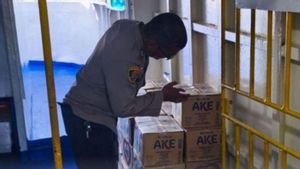JAKARTA - The COVID-19 pandemic has disrupted community demand. As a result, this year's inflation is below 2 percent. This figure is far from the government's prediction of 3 percent plus minus 1 percent. Increasing the deli power is the government's homework to spur economic recovery in 2021.
Coordinating Minister for the Economy Airlangga Hartarto said inflation was recorded at 1.42 percent on an annual basis or year on year (yoy) in September 2020 indicating that the demand side was disrupted.
"Inflation is below the targeted level. So of course this proves that our demand is being disrupted, even though the government is pushing several social protection programs to maintain a demand of Rp. 203 trillion, as stated by the Minister of Finance," he said, at the '2020 National Coordination Meeting for Inflation Control' held virtually, Thursday, October 22nd.
Airlangga hopes that the various assistance provided by the government, ranging from productive presidential assistance (Banpres) of IDR 36 trillion, salary subsidies of IDR 37.1 trillion, to IDR 20 trillion of Pre-employment Cards can be a factor leveraging demand which is experiencing shock.
"So that we can get higher purchasing power. We look to the future. Of course we hope that our problem is not in quotes to maintain inflation. But how to encourage demand so that inflation returns to level 2 or below 3 percent. This means there is growth," he explained .
On the same occasion, Finance Minister Sri Mulyani said, the demand side still needs to be encouraged if you see the inflation rate which is lower than the target set by the government.
Sri Mulyani said that the government would accelerate the distribution of people's purchasing power through the 2020 National Economic Recovery Program (PEN). Through this program the government budgeted a demand side ceiling of IDR205.2 trillion, or around 29.5 percent of the total PEN budget of IDR695.2 trillion. .
As for programs to strengthen demand in the PEN program, namely through social protection targeting the poor to medium-sized communities and support for micro, small and medium enterprises (MSMEs).
"The government will maintain demand because it will have an impact on the people's purchasing power. This is what we are doing in maintaining economic performance from the micro and household sectors," he said.
In addition, Sri Mulyani hopes that the APBN with 2.5 months remaining in 2020 can be maximized to increase economic recovery, especially from the demand side.
For your information, the government is optimistic that Indonesia's economy in the fourth quarter of 2020 will be much better than the previous quarters. The economy is estimated to grow in the range of minus 1.7 percent to positive 0.6 percent.
In the second quarter of this year, economic growth contracted by minus 5.32 percent. Meanwhile, in the third quarter, economic growth is predicted to remain in the negative zone, namely in the range of minus 2.9 percent to minus 1.1 percent.
The English, Chinese, Japanese, Arabic, and French versions are automatically generated by the AI. So there may still be inaccuracies in translating, please always see Indonesian as our main language. (system supported by DigitalSiber.id)













